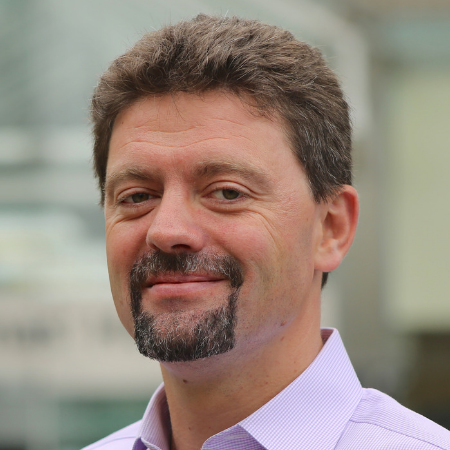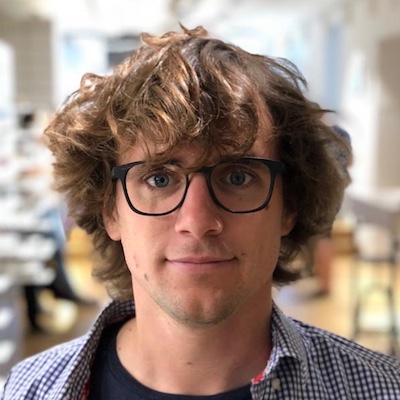Scientific program
December 2, 2020, 12:00 - 18:00 CET
Zoom meeting
-
Before the meeting: The workshop program includes pre-recorded 15 min video presentations of full papers, which the prospective attendees are kindly invited to view prior to the meeting. For each paper you can find links to the videos in the program below.
-
During the meeting: The two keynotes will be delivered live. At the start of each oral session, all authors in the session will present their contributions in 2 min pitches, using a one-slide graphical abstract, followed by a joint discussion of all the session papers. Anytime during the session questions for the presenters can be posted into Zoom Q/A or chat window, upon which the session chair will guide the discussion. In the sessions, where multiple authors will present, please address the questions by the author's name, e.g. "@Stefan: What is the..." or by Paper or Abstract ID number as indicated in the program below, e.g. "@#P12: Please elaborate on ...".
Welcome note
Keynote 1
- Sebastien Ourselin
Translating medical imaging research towards real-world clinical applications
Oral session: Multi-channel image registration
-
Session chair: Brian Avants
-
Xuesong Lu, Yuchuan Qiao
Multi-channel image registration of cardiac MR using supervised feature learning with convolutional encoder-decoder network
[#P1] [ Paper] [ Abstract] [ Video] -
Alena Uus, Maximilian Pietsch, Irina Grigorescu, Daan Christiaens, Jacques-Donald Tournier, Lucilio Cordero Grande, Jana Hutter, David Edwards, Joseph Hajnal, Maria Deprez
Multi-channel registration for diffusion MRI: longitudinal analysis for the neonatal brain
[#P2] [ Paper] [ Abstract] [ Video] -
Hester Breman, Joost Mulders, Levin Fritz, Judith Peters, John Pyles, Judith Eck, Matteo Bastiani, Alard Roebroeck, John Ashburner, Rainer Goebel
An image registration-based method for EPI distortion Correction based on Opposite Phase Encoding (COPE)
[#P3] [ Paper] [ Abstract] [ Video] -
Irina Grigorescu, Alena Uus, Daan Christiaens, Lucilio Cordero-Grande, Jana Hutter, A. David Edwards, Joseph V. Hajnal, Marc Modat, Maria Deprez
Diffusion tensor driven image registration: a deep learning approach
[#P4] [ Paper] [ Abstract] [ Video] -
Frederik J. Lange, Stephen M. Smith, Mads F. Bertelsen, Alexandre A. Khrapitchev, Paul R. Manger, Rogier B. Mars, Jesper L.R. Andersson
Multimodal MRI template creation in the ring-tailed lemur and rhesus macaque
[#P5] [ Paper] [ Abstract] [ Video] -
Damjan Vukovic, Maria Antico, Laura Meszaros, Gerard Snaauw, Gustavo Carneiro, Davide Fontanarosa
Deep learning based automatic 3D MR-US image registration for the spine
[#A1] [ Paper]
Oral session: Robust initialization and acceleration
-
Session chair: Boudewijn Lelieveldt
-
Emanuele Olivetti, Pietro Gori, Pietro Astolfi, Giulia Bertó, Paolo Avesani
Nonlinear alignment of whole tractograms with the linear assignment problem
[#P6] [ Paper] [ Abstract] [ Video] - Marek Wodzinski, Henning Müller
Learning-based affine registration of histological images
[#P7] [ Paper] [ Abstract] [ Video] -
Roman Grothausmann, Dženan Zukić, Matt McCormick, Christian Mühlfeld, Lars Knudsen
Enabling manual intervention for otherwise automated registration of large image series
[#P8] [ Paper] [ Abstract] [ Video] -
Wietske A.P. Bastiaansen, Melek Rousian, Régine P.M. Steegers-Theunissen, Wiro J. Niessen, Anton Koning, Stefan Klein
Towards segmentation and spatial alignment of the human embryonic brain using deep learning for atlas-based registration
[#P9] [ Paper] [ Abstract] [ Video] -
Sébastien Piluso, Nicolas Souedet, Caroline Jan, Cédric Clouchoux, Thierry Delzescaux
Automated registration of single 2D histological brain slices with 3D digital atlas in rodents
[#A2] [ Paper] [ Abstract]
25 min break
Keynote 2
- Mattias Heinrich
How to make deep learning work in medical image registration, current advances, pitfalls and remaining challenges
[ Slides]
Oral session: Interventional and landmark based registration
-
Session chair: Jan Modersitzki
-
Annkristin Lange, Stefan Heldmann
Multilevel 2D-3D intensity-based image registration
[#P10] [ Paper] [ Abstract] [ Video] - David Drobny, Marta Ranzini, Amanda Isaac, Tom Vercauteren, Sebastien Ourselin, David Choi, Marc Modat
Towards automated spine mobility quantification: a locally rigid CT to X-ray registration framework
[#P11] [ Paper] [ Abstract] [ Video] -
Diana Waldmannstetter, Fernando Navarro, Benedikt Wiestler, Jan S. Kirschke, Anjany Sekuboyina, Ester Molero, Bjoern H. Menze
Reinforced redetection of landmark in pre- and post-operative brain scan using anatomical guidance for image alignment
[#P12] [ Paper] [ Abstract] [ Video] -
Brian Avants, Elliot Greenblatt, Jacob Hesterman, Nicholas Tustison
Deep volumetric feature encoding for biomedical images
[#P13] [ Paper] [ Abstract] [ Video]
Oral session: Applications and tools
-
Session chair: Marc Modat
-
Eric Ng, Mehran Ebrahimi
An unsupervised learning approach to discontinuity-preserving image registration
[#P14] [ Paper] [ Abstract] [ Video] -
Hari Om Aggrawal, Martin S. Andersen, Jan Modersitzki
An image registration framework for discontinuous mappings along cracks
[#P15] [ Paper] [ Abstract] [ Video] -
Sven Kuckertz, Nils Papenberg, Jonas Honegger, Tomasz Morgas, Benjamin Haas, Stefan Heldmann
Learning deformable image registration with structure guidance constraints for adaptive radio therapy
[#P16] [ Paper] [ Abstract] [ Video] -
Florian Amstutz, Lena Nenoff, Cassia O. Ribeiro, Francesca Albertini, Antje C. Knopf, Damien C. Weber, Antony J. Lomax, Ye Zhang
Quantification and modelling of the geometric and dosimetric uncertainties due to deformable image registration for dose accumulation in proton therapy
[#A3] [ Paper] [ Abstract] -
Dženan Zukić, Matt McCormick
Web-based Registration Tools Based on ITKElastix
[#A4] [ Paper] [ Abstract]
Discussion forum, Award ceremony, Closing remarks
Keynotes
The following keynote presentations will be given during WBIR2020:
Translating medical imaging research towards real-world clinical applications
Sebastien Ourselin, King's College London

Seb Ourselin is Head of the School of Biomedical Engineering & Imaging Sciences, King’s College London; dedicated to the development, translation and clinical application of medical imaging, computational modelling, minimally invasive interventions and surgery. In collaboration with Guy’s & St Thomas’ NHS Foundation Trust (GSTT), he is leading the establishment of the MedTech Hub, located at St Thomas’ campus. The vision of the MedTech Hub is to create a unique infrastructure that will develop health technologies including AI, medical devices, workforce and operational improvements that will be of global significance.
Previously, he was based at UCL where he formed and led numerous activities including the UCL Institute of Healthcare Engineering, the EPSRC Centre for Doctoral Training in Medical Imaging and Wellcome EPSRC Centre for Surgical and Interventional Sciences.
He is co-founder of Brainminer, an academic spin-out commercialising machine learning algorithms for brain image analysis. Their clinical decision support system for dementia diagnosis, DIADEM, obtained CE marking.
Over the last 15 years, he has raised over £50M as Principal Investigator and has published over 420 articles (over 20,000 citations, h-index 73). He is/was an associate editor for IEEE Transactions on Medical Imaging, Journal of Medical Imaging, Nature Scientific Reports, and Medical Image Analysis. He has been active in conference organisation (12 international conferences as General or Program Chair) and professional societies (APRS, MICCAI). He was elected Fellow of the MICCAI Society in 2016.
How to make deep learning work in medical image registration, current advances, pitfalls and remaining challenges
Mattias Heinrich, University of Lübeck

Mattias Heinrich is Associate Professor for Medical Image Analysis at the Institute of Medical Informatics at the University of Lübeck. He leads a group on Medical Deep Learning with 8 researchers and enjoys teaching (under)graduate students how to implement solutions to vision problems. Since starting his doctorate in 2009 with Julia Schnabel at the University of Oxford, his passion is medical image registration. He co-organised WBIR 2016 in Las Vegas, the tutorial Learn2Reg at MICCAI 2019 and a multi-task registration challenge at MICCAI 2020. In 2021 he will be co-chair of MIDL in Lübeck.
He and his team strive to push the boundaries of medical image registration and improve its capabilities for clinical applications as well as develop novel theoretical concepts. In 2011 he won the prestigious MICCAI Young Scientist Award for MIND for multimodal registration. His work on large-displacement discrete registration (deeds) led to the 1st place in the EMPIRE10 challenge. To date, he has published 16 MICCAI papers and more than 25 journal articles (many of them in MedIA and TMI with >2500 citations and an h-index of 23). As principal investigator, he has acquired multiple competitive grants (1.7M€ over the last 5 years) for basic research projects mostly involving machine learning and image registration. He is currently looking for new talents to join his group.
